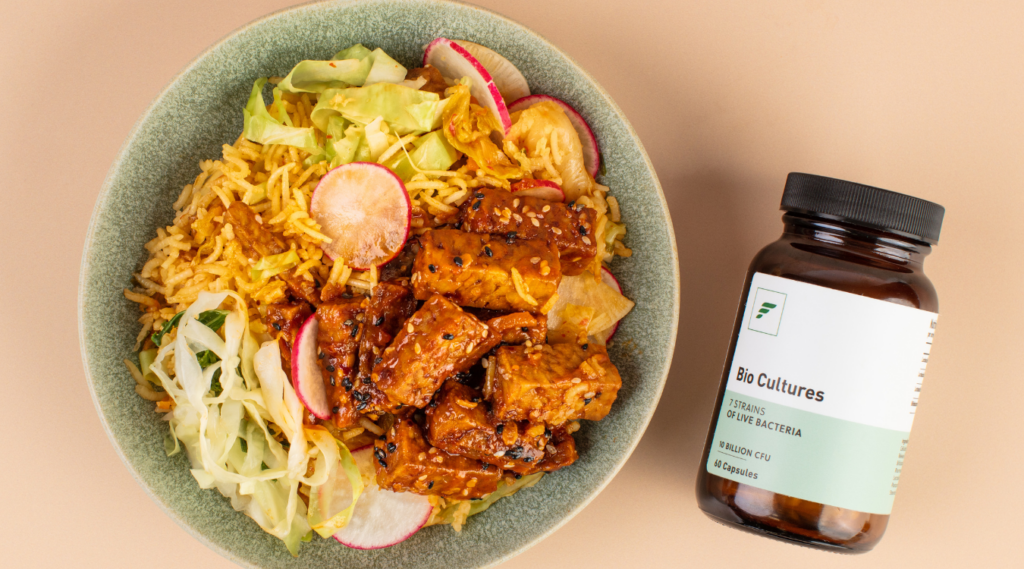The Importance of Gut Health & Probiotics

Why should care about our gut health?
Gut health is a rapidly growing field of research; aside from impacting your physical health, your gut bacteria can also have an impact on your mental health. The intricate mechanisms of this are not yet fully understood, but through something named the ‘gut-brain axis’, our microbiomes communicate with our central nervous system through the enteric nervous system (also known as the ‘second brain’) that covers our gastrointestinal tract. This seems to work two ways – from the gut to the brain, and then the brain back down to the gut.
With this, it is believed that our mental state can alter our gut health; if there is stress in the brain, this can transpire to stress in the gut as well, so keeping your gut happy and your mind stress-free is optimal for both your mental and physical health!
Pre versus probiotics
Many people want to improve their gut health but aren’t sure how to go about it. A good place to start is by looking into probiotics.
Probiotics are live bio cultures that are consumed through fermented food or drink (think products like kefir, kimchi or kombucha) or via supplements, which research has shown to have possible health benefits. Bio cultures can be more colloquially referred to as ‘good’ bacteria, as they do not cause disease or illness and aid in keeping you healthy, rather than making you ill.
When consumed, they compete with any potentially harmful bacteria in the gut for space and food, reducing the amount of harmful bacteria that reside there.
Probiotics have been suggested to help to maintain a healthy community of microorganisms by increasing the levels of good bacteria and reducing the ability of harmful bacteria to survive. They can also have the potential to help your body to return to a healthy condition after being disturbed (by illness and/or antibiotics) and produce substances that have a desirable effect or influence your body’s immune response (1).
Probiotics are often confused with prebiotics. Prebiotics are a type of fibre that cannot be properly digested by the body and instead are passed into the gut, where they feed the ‘healthy’ gut bacteria.
What you need to know
There are a few things to be aware of before embarking on a gut health journey, particularly if you’re looking into probiotic supplements.
- Probiotics are more typically classed as food rather than medicine. This means that they do not undergo the same levels of regulation as medicines do, and so the contents may not be exactly as advertised – there’s a possibility that the bacteria stated on the label may be different, that there are insufficient bacteria to have an impact, and that the bacteria may not be able to survive long enough to reach your gut.
- There are many different types of probiotics, all of which may have different impacts on the body.
- Similarly, it’s possible that one brand or strain might help resolve issues in one area but not in others – it can take a bit of trial and error and patience to find a probiotic that works well for you.
How to take them
Instructions to take probiotics may differ from strain to strain/brand to brand, so make sure to check the label on the packaging for supplements. With food products like kefir or sauerkraut, just try to include them in your meals when it comes to cooking.
Additionally, there is evidence to show that taking probiotics at the same time each day is most effective for optimal gut health, so try to stick to similar timings where possible!
Where to buy them
Luckily we’ve taken care of all your bio culture needs by creating a probiotic supplement that can be purchased whether you’re an FFF client or not! These can be purchased through our Supplements Shop page here, or if you are already an FFF client, you can log into your account here and add your Bio Cultures bottle to your next delivery.
If you’re interested in the other supplements we have to offer, you can find out about them here – we even have a quiz you can take to help guide your choice, based on your current lifestyle and dietary preferences.